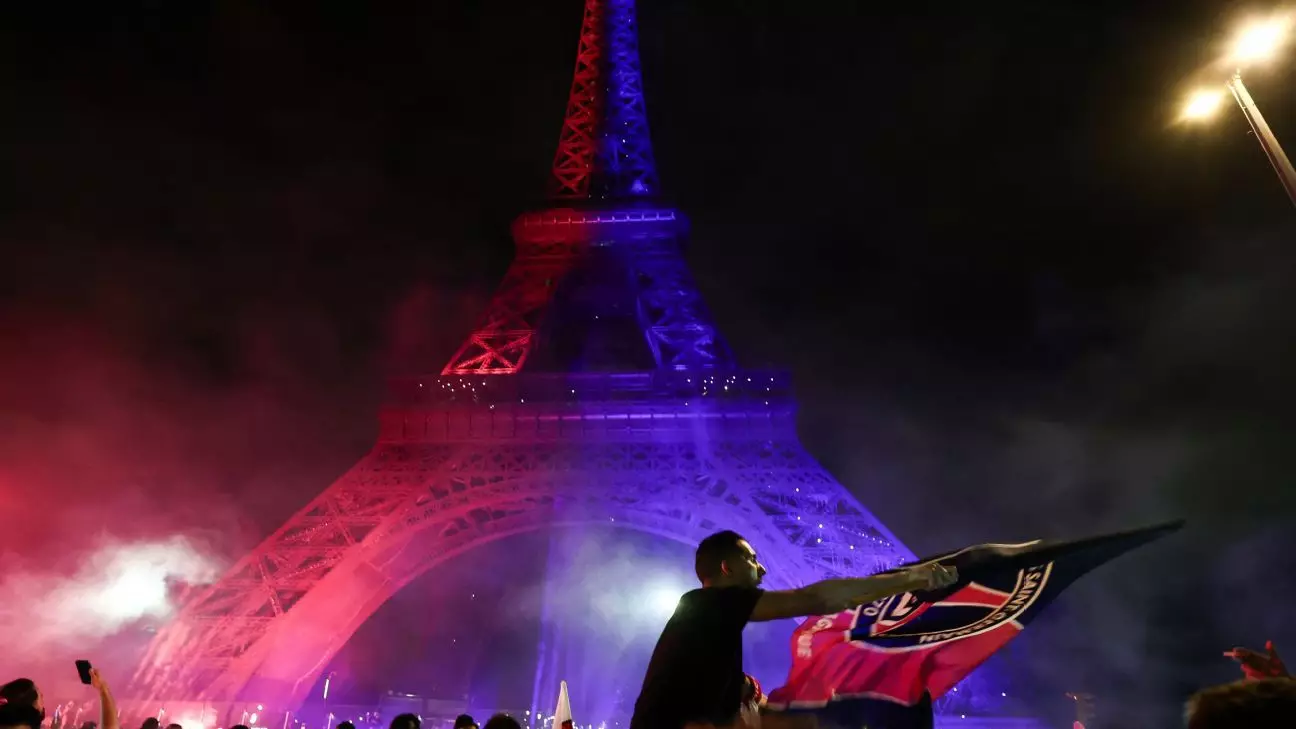The night of Paris Saint-Germain’s historic victory in the Champions League should have been a time of unbridled jubilation, a deluge of joy cascading through the streets of Paris. Instead, it turned into a paradoxical celebration, marred by chaos and violence. While accolades poured in for a team finally fulfilling its grand potential, mournful news seeped in—the tragic deaths of two fans and a grave injury to a police officer. In an age where moments of collective euphoria are increasingly precious, the aftermath of Saturday’s wild celebrations raises profound concerns about the nature of modern fandom and public safety.
In a country where football serves as a unifying force, this tragic turn of events underscores a more sinister undercurrent. How can we reconcile the explosive joy of a long-awaited win with the violence and disorder that erupted in its wake? It’s clear that sporting triumph, particularly in a vibrant city like Paris, doesn’t exist in a vacuum. The cheers and the confetti fell hand-in-hand with rampant lawlessness, raising uncomfortable questions about the limits of celebration in public spaces.
When Passion Turns to Panic
The scenes in Paris were a study in contrasts—joyous celebrations alongside despairing violence. As the Eiffel Tower illuminated in PSG’s colors, revelers filled the streets, celebrating their team’s achievement. Yet, a mere stone’s throw away, chaos erupted. A 17-year-old boy’s life was snuffed out in the town of Dax, punctuated by the knife that took it. In Paris, another young man’s life was cut short in a fatal accident involving a scooter—showcasing a disturbing theme: the intersection of seemingly innocuous celebrations with tragic, violent outcomes.
It begs the question: at what point does passion for the game morph into something darker? When throngs of fans spill into the streets, do we need to reconsider the terms of public celebrations? Should local authorities intervene to preemptively curb potential violence, even at the risk of dimming the jubilant spirit? More poignantly, who takes responsibility when lives are lost in the name of festivity?
Security Concerns and the Role of Authorities
The rising tide of violence during these celebrations is not an isolated incident. Paris Police Chief Laurent Nunez pointed to “thousands of people who came to commit acts of violence” rather than simply revel in the victory, a claim that sheds light on a darker reality. If a faction of the crowd was intent not on celebrating but on spawning chaos, where does that leave the accountability of law enforcement agencies? Are they prepared to handle the delicate balance between maintaining order and allowing for communal celebration?
The security response was a curious mix—tear gas, water cannons, and mass arrests. With 294 arrests made, it reaffirms a grim reality that cities must be ever-vigilant, always prepared for the unpredictability of crowds fueled by adrenaline, hope, and sometimes, nefarious intent. The police forces’ strategies, while designed to ensure safety, often exacerbate tensions, creating a cycle where fear and potential violence breed more stringent responses.
A Call for Remediation and Responsibility
The tragic fatalities highlight the need for a renewed discussion around crowd control during high-stakes events. Rather than merely reacting after the fact, it may be time for stakeholders—clubs, city officials, and law enforcement—to develop comprehensive, forward-thinking strategies that promote safety without extinguishing the effervescent spirit of celebration. This is not a matter of curbing freedom; it’s about finding a way to celebrate while ensuring public safety.
As we reflect on the bittersweet nature of PSG’s triumph, it’s crucial to recognize that the love of sport can ignite not only joy but also the potential for violence and chaos. How we choose to navigate this labyrinth of passion will not only shape future celebrations but will also dictate the broader fabric of societal interaction in public spaces. In our ambition to celebrate our victories, let us remember that triumph is hollow when burdened by tragedy. The lessons learned from this tumultuous night must inform how we celebrate, turning collective euphoria into a safe and joyous experience for all, unmarred by loss or violence.

Leave a Reply